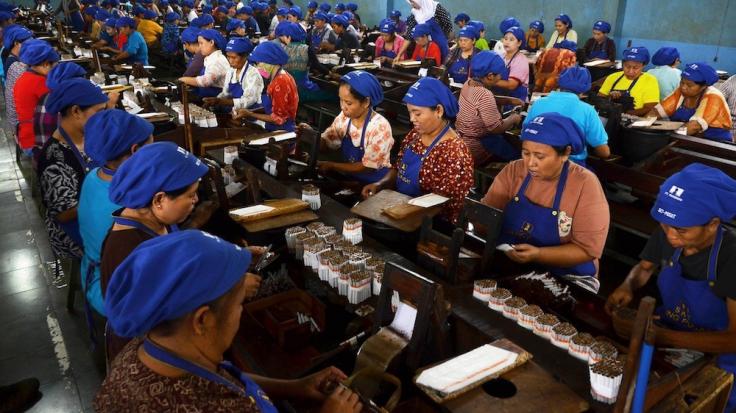Indonesian cigarette-producing branch was decreased almost in 5 times over last 7 years

The Finance Ministry plans to increase excises and taxes on tobacco production, but at the same time it doubts that the such measures will reduce the prevalence of smoking in the country, saying that the regulation needs to be combined with non-fiscal policies to make it more effective, thejakartapost.com informs.
Suahasil Nazara, the ministry’s fiscal policy office (BKF) head, said that besides gradually increasing the excise, educating people about the negative impact of smoking and preventing youth from purchasing tobacco products were equally important.
“I don’t believe that reducing excise tax will reduce the prevalence of smoking. We need to use a combination of fiscal and non-fiscal policies,” he said in a discussion on tobacco at Hotel Borobudur, Jakarta.
In the past eight years, the number of tobacco factories had gone down to 714 in 2015 from 4,669 in 2007, which reflected flat cigarette production. The fact implied that production had decreased in line with market forces, he said.
The government’s argument was slammed by Hasbullah Thabrany, a professor of public health at the University of Indonesia’s School of Public Health, who said the reason behind the declining number of tobacco companies was that many small companies — mostly those producing hand-rolled cigarettes — were unable to compete with big firms.
The Finance Ministry announced in October that it had issued a regulation to increase excise by an average of 10.54 percent next year for several types of cigarettes. The price increase is lower than the target set by the government this year at 11.33 percent.
